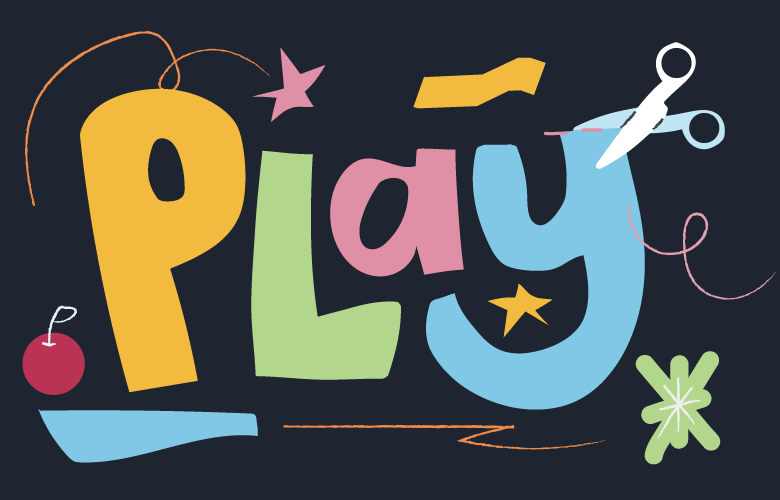
This post is an excerpt from a post published on the Institute of Education Sciences (IES) Regional Educational Laboratory (REL) Northeast & Islands blog. It is reprinted here with permission from IES.
When my son opened the door to his preschool classroom this morning, one child was smoothing squares of colored felt onto the floors of a large dollhouse. At another table, stringy, green moss—coiled around smooth sticks and stumps—concealed gnome figurines and woodland creatures. Past the play kitchen and baby nursery, kids stacked heavy blocks to make a city or a pirate ship. In an adjoining room, bins of rice held funnels and measuring cups and spoons and rakes. The space invites play.
Play-based learning is relatively common in preschool settings and has been linked to the development of 21st century learning skills—including collaboration, communication, content, critical thinking, creative innovation, and confidence1—as well as social and emotional development,2 language development,3 and math outcomes.4 However, standards-based accountability and mounting pressures from parents and state officials to meet academic benchmarks as early as kindergarten have led teachers to focus on more didactic approaches, such as direct instruction, rote memorization, and worksheets.5
While direct instruction can be beneficial in some areas, like phonics, a balance with play-based learning remains essential. Some states are ensuring children’s access to classroom play by legally mandating a play-based approach to kindergarten. In 2018, New Hampshire amended its education law to require “child-directed experiences,” including “movement, creative expression, exploration, socialization, and music.” Yet, many teachers remain uncertain about what play-based learning looks like and how they can facilitate it.
How Teachers View Play Matters
Though the value of play is widely recognized, teachers’ perspectives on play-based learning vary considerably,6 and their implementation of play-based practices is also mixed. “Teachers often say ‘oh yes, I’m already doing that’ because they let their students play for 20 minutes at the end of the day,” explains Christine Brennan, Deputy Commissioner of Education in New Hampshire, “but there’s so much more to it than that.”
To continue reading, visit the original REL Northeast & Islands blog post.
Related Resource: For a fact sheet about play-based learning, see What is Play-based Learning in Kindergarten?, a resource that highlights the components of guided-play accompanied by illustrated examples of students learning academic and social-emotional skills through play.
EDC senior research associate Meg Caven, a sociologist and education researcher, examines the intersection of education, policy, and inequality. For the REL Northeast & Islands at EDC, Meg co-leads the New Hampshire Partnership to Increase Early Learning Outcomes through Play |
1Zosh, J. M., Hopkins, E. J., Jensen, H., Liu, C., Neale, D., Hirsh-Pasek, K., Solis, S. L., & Whitebread, D. (2017). Learning through play: A review of the evidence (white paper). The LEGO Foundation, DK.
2Parker, R., and Thomsen, B. S. (2019). Learning through play at school: A study of playful integrated pedagogies that foster children’s holistic skills development in the primary school classroom. Billund: LEGO Foundation.
3Stagnitti, K., Bailey, A., Hudspeth Stevenson, E., Reynolds, E., & Kidd, E. (2016). An investigation into the effect of play-based instruction on the development of play skills and oral language. Journal of Early Childhood Research, 14(4), 389–406. https://doi.org/10.1177/1476718X15579741
4Vogt, F., Hauser, B., Stebler, R., Rechsteiner, K., & Urech, C. (2018). Learning through play–pedagogy and learning outcomes in early childhood mathematics. European Early Childhood Education Research Journal, 26(4), 589–603. https://doi.org/10.1080/1350293X.2018.1487160
5Bassok, D., Latham, S., & Rorem, A. (2016). Is kindergarten the new first grade? In AERA Open (Vol. 2).
6Bubikova-Moan, J., Næss Hjetland, H., & Wollscheid, S. (2019). ECE teachers’ views on play-based learning: A systematic review. European Early Childhood Education Research Journal, 27(6), 776–800.

Add new comment